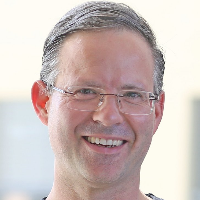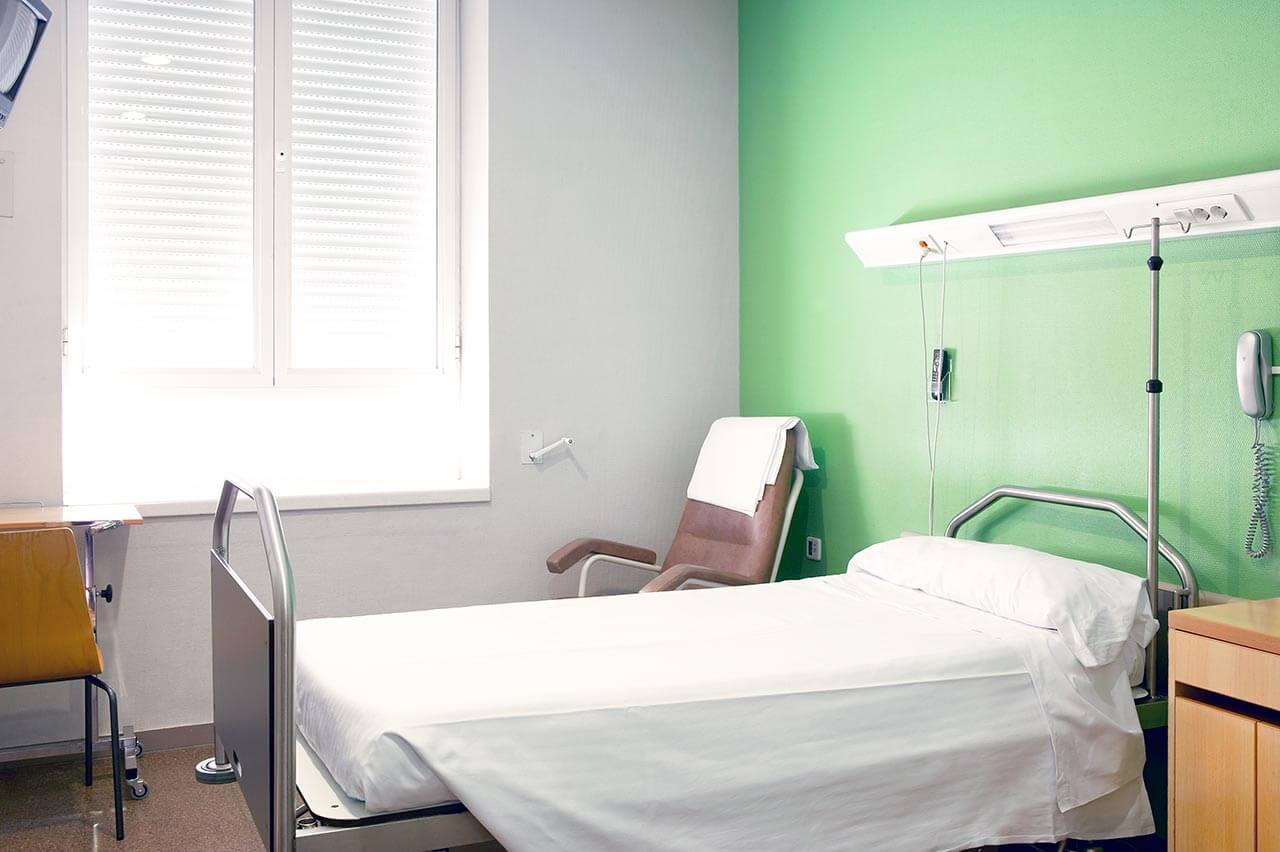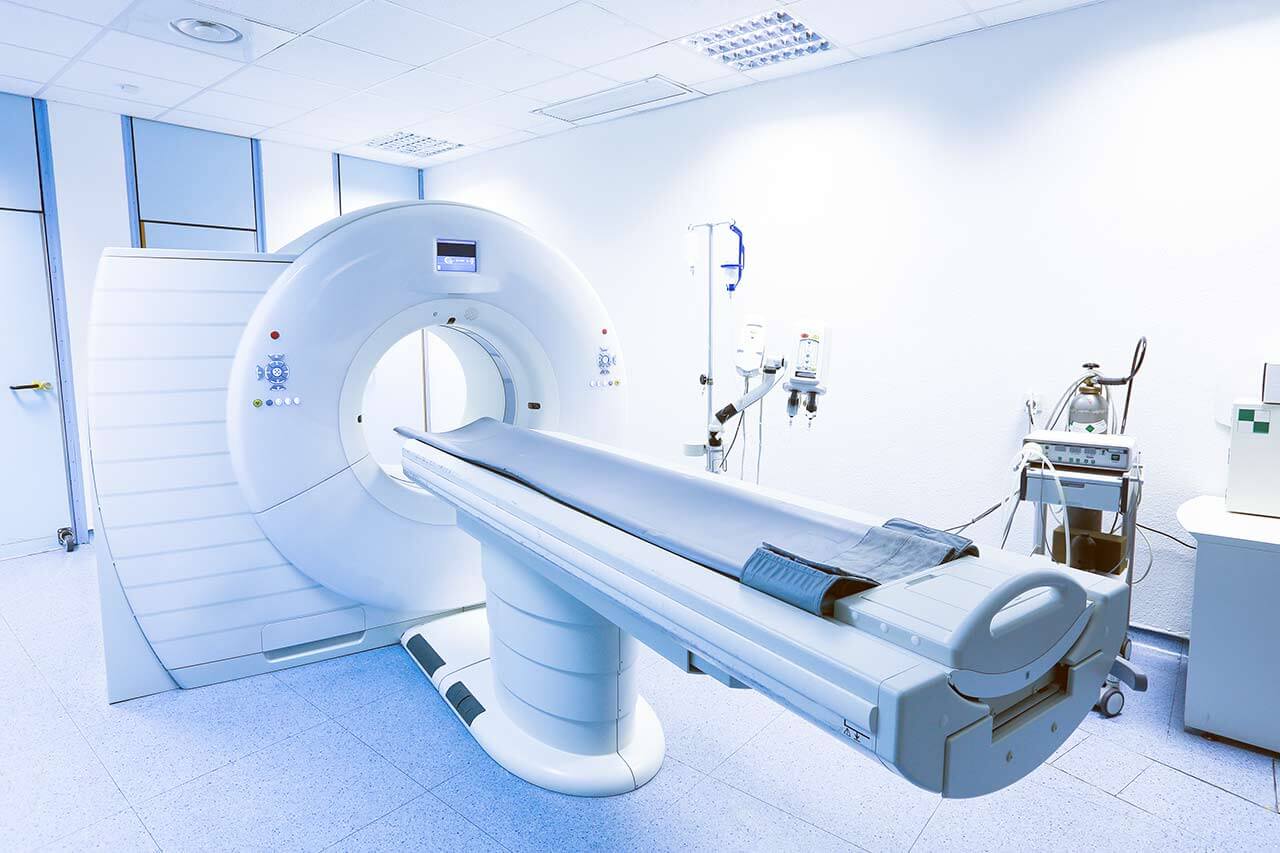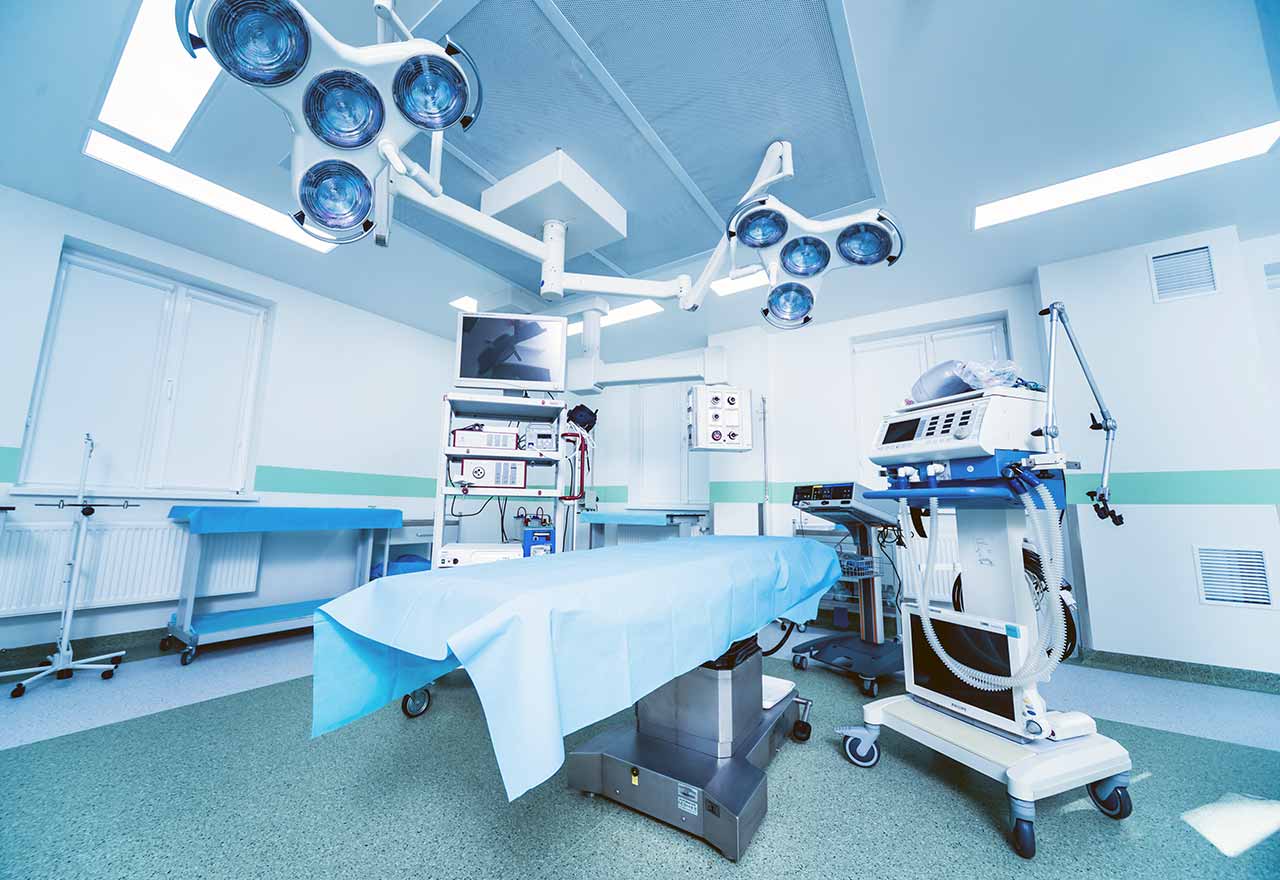
The program includes:
- Initial presentation in the clinic
- clinical history taking
- review of medical records
- physical examination
- laboratory tests:
- complete blood count
- general urine analysis
- biochemical analysis of blood
- inflammation indicators (CRP, ESR)
- TSH-basal, fT3, fT4
- indicators of blood coagulation
- CT planning of radiation therapy
- full course of conventional radiation therapy
- symptomatic treatment
- cost of essential medicines and materials
- nursing services
- control examinations
- consultations of related specialists
How program is carried out
During the first visit, the doctor will conduct a clinical examination and go through the results of previous laboratory tests and instrumental examinations. After that, you will undergo an additional examination, including complete blood count, laboratory assessment of liver and kidney function. Based on the received results, the physician will conduct radiotherapy planning with the help of CT or MRI, make the permanent tattoo marks on the skin and conduct CT simulation in order to assess the accuracy of the rays and the radiation dose. If necessary, related medical specialists will be involved in the elaboration of a treatment regimen (tumor board).
Radiation therapy is carried out as the day hospital procedure, without mandatory admission to the hospital. At each visit, the physician will assess your general condition and the marks on the skin. After that, you will be placed in a shielded radiation therapy room, on a special table.
Each radiation therapy session lasts less than half an hour (including preparation). All this time, doctors and nurses are monitoring your condition, you can communicate with them through a loudspeaker. The procedure is completely painless. Depending on the planned course of treatment, you will visit the hospital from 1 to 3-5 times a week.
After the completion of the radiation therapy course, you will undergo control examinations aimed at assessing your condition and efficacy of treatment. After that you will receive the medical report with detailed recommendations regarding further follow-up and treatment. In the future, you will be able to have a distant consultation with your attending physician and schedule the next course of treatment, if necessary.
Required documents
- Medical records
- MRI/CT scan (not older than 3 months)
- Biopsy results (if available)
Service
You may also book:
 BookingHealth Price from:
BookingHealth Price from:
About the department
The Department of Radiation Therapy and Radiation Oncology at the HELIOS Clinic Krefeld provides all the modern types of radiation therapy at the highest level. The department's doctors work on advanced medical equipment, due to which they can effectively irradiate pathological foci, while ensuring minimal impact on the adjacent healthy tissues. The key focus in clinical practice is on the treatment of malignant diseases of various localization. In addition, the specialists have successful experience in the treatment of chronic pain in joints and bones, which significantly impair the quality of life of a person by limiting his mobility. Supportive radiation therapy is also within the competence of the department's radiation therapists. Prior to any radiation therapy, it is carefully planned taking into account the results of computed tomography. The radiation dose and the duration of the course of treatment are individually selected for each patient, since each clinical case requires a special approach. After radiation therapy, the patient undergoes regular follow-up diagnostic examinations to avoid cancer recurrence. The Chief Physician of the department is Dr. med. Michael Daum-Marzian.
At the initial consultation, the doctor studies the patient's history and diagnostic results to determine if it is reasonable to use radiation therapy. Prior to prescribing radiation therapy, the patient receives full information about the process of treatment, the predicted result and possible side effects. The next step is to plan the course of treatment based on the results of computed tomography (often with contrast enhancement). In addition, radiation therapy planning involves a tailored production of special devices for positioning the patient during irradiation. The number of radiation sessions depends on the type of tumor, the stage of cancer, and the goals of therapy. As a rule, the duration of the course of treatment is 5-8 weeks. The treatment sessions are carried out every day, except weekends. The irradiation itself takes only a few minutes, while most of the time is spent on positioning the patient and adjusting the equipment. 10-14 days after the completion of the course of radiation therapy, the attending physician evaluates the final result.
The department keeps pace with innovations in medicine, and therefore it can offer the very latest types of radiation therapy available only in the best medical centers in Germany and throughout Europe. One of these advanced types of irradiation is RapidArc radiation therapy. This type of radiation therapy is distinguished by the highest precision in the selection of the optimal dose of radiation, as well as by the fact that during the procedure the maximum dose of radiation is aimed at the pathological focus. Thus, the specialists manage to avoid damage to adjacent healthy tissues, which minimizes the side effects typical for radiation therapy. RapidArc technology is the optimal treatment option for deep and hard-to-reach tumors, such as prostate tumors, head and neck tumors. In addition, the innovative RapidArc radiation therapy significantly reduces the duration of the treatment course, which lasts only a few weeks. The indisputable advantages of the RapidArc technique are excellent tolerability and high efficiency of therapy.
The department's primary focus is on the treatment of malignant diseases, but radiation therapists also specialize in radiation therapy for chronic joint, bone and soft tissue pain. The doctors use lower doses of radiation in the treatment of pain syndromes than they do for cancer. The numerous clinical tests and long experience of the department's specialists prove that this alternative type of treatment is very effective, since many patients manage to get rid of pain for a long time and significantly improve mobility. The department's doctors successfully carry out X-ray therapy for such diseases as heel spurs, achillodynia, Dupuytren's contracture, large and small joint arthritis, frozen shoulder, golfer's elbow and tennis elbow.
The department's range of medical services includes:
- Intensity-modulated radiation therapy (IMRT)
- Image-guided radiation therapy (IGRT)
- Brachytherapy
- Intraoperative radiation therapy (IORT)
- Chemoradiation therapy
- Palliative radiation therapy
- X-ray therapy for chronic pain in joints, bones and soft tissues
- Other therapeutic options
Curriculum vitae
Higher Education and Professional Career
- 1999 Admission to medical practice.
- 2003 Doctoral thesis defense.
- 2005 Board certification in Radiation Oncology.
- 2015 Board certification in Palliative Medicine.
- 2009 Senior Physician in the Department of Adult and Pediatric Radiation Therapy at the University Hospital Duesseldorf.
- 2011 Chief Physician in the Department of Radiation Therapy at the Evangelical Hospital Gelsenkirchen.
- Since 2011 Chief Physician in the Department of Radiation Therapy and Radiation Oncology at the HELIOS Clinic Krefeld.
Clinical Interest
- High-precision radiation therapy (stereotaxy).
- Sparing multi-field radiation therapy (intensity modulated radiation therapy, RapidArc radiation therapy).
- Image-guided radiation therapy (IGRT).
- Respiratory gating radiation therapy.
- Intraoperative radiation therapy (IORT).
- Brachytherapy (afterloading).
- Chemotherapy and antibody therapy.
- Palliative care.
Memberships in Professional Societies
- German Society for Radiation Oncology.
- German Society for Pediatric Oncology and Hematology.
- German Cancer Society.
Photo of the doctor: (c) Helios Klinikum Krefeld
About hospital
Founded in 2014, the HELIOS Clinic Krefeld is one of the most modern medical facilities in Germany today. A team of highly qualified specialists, innovative medical equipment and comfortable accommodation conditions – the clinic has everything to make the treatment run smoothly and efficiently. Having crossed the threshold of the clinic, you will feel the home-like cozy and modern atmosphere. Perhaps you will even forget that you are in the clinic.
As a maximum care medical center, the clinic covers practically all areas of medicine: cardiology, gastroenterology, oncology and hepatology, nephrology, diabetology and rheumatology, general, abdominal and minimally invasive surgery, dermatology and venereology, angiology, cardiac surgery and other medical fields.
Thanks to a continuous fruitful cooperation with the world’s leading universities, research and medical centers, the clinic provides the highest treatment standards.
The doctors of the clinic take up the treatment of the most severe cases, including serious spinal injuries and diseases related to the disorders of the central nervous system. The nursing staff of the clinic regularly undergoes both advanced and special trainings, which contributes to a high-quality, professional patient care at all stages of treatment.
The clinic adheres to a strict quality management system. Not only the patient care, but also the entire treatment process (including monitoring and patient care after the operation) are subject to the quality certification.
Photo: (c) depositphotos
Accommodation in hospital
Patients rooms
The patients of the HELIOS Clinic Krefeld live in comfortable single and double rooms. Each room has a bathroom with a toilet and shower. The room is furnished with a comfortable bed, bedside table, TV, radio and telephone. Each room has access to the Internet, which can be used at extra charge.
The clinic offers an excellent infrastructure: a beautiful park with playgrounds for children, a cafeteria, a chapel, which regularly hosts church services, a prayer room for Muslims, a beauty salon, a shop with a large selection of magazines, drinks and personal hygiene items, an ATM and a large parking lot.
Meals and Menus
The restaurant of the clinic offers three meals a day. For breakfast, lunch and dinner, it serves a large selection of dishes that will please even spoiled gourmets. Every day, the menu features vegetarian and dietary dishes. It is possible to order any dish without leaving the room. In addition, the clinic has a cafeteria where one can always have a cup of aromatic coffee, hot tea or enjoy an exquisite refreshing drink. Also, the cafeteria menu offers many tasty snacks and dishes.
Further details
Standard rooms include:




